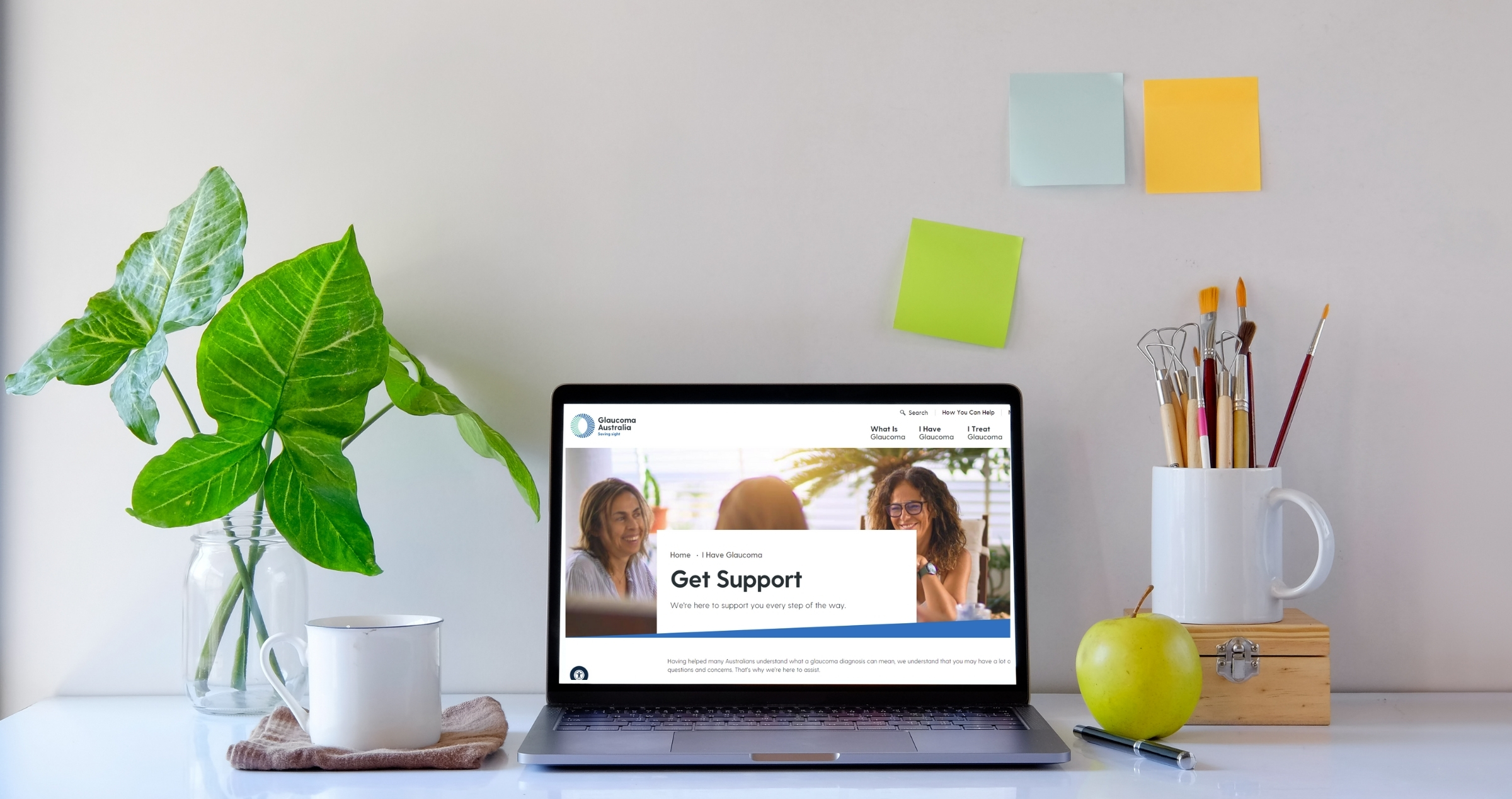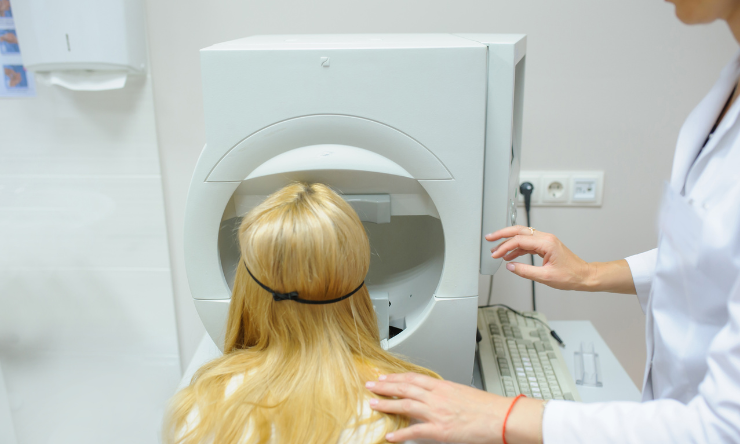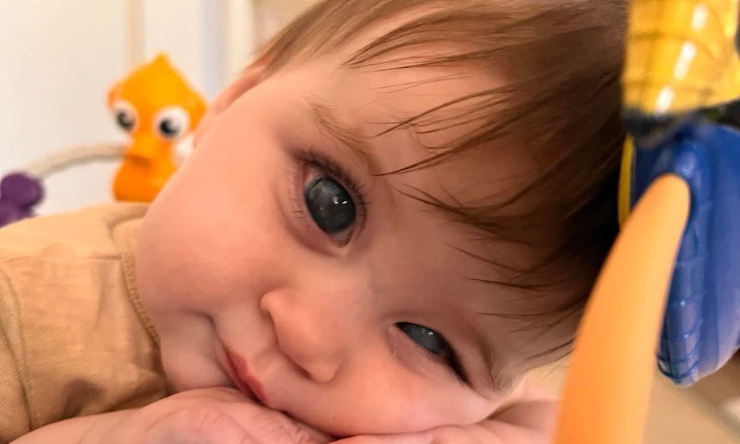Share
Orthoptics Awareness Week (31 May – 4 June) is an annual event celebrating Orthoptists across Australia. This year’s theme is ‘A day in the life of an orthoptist – Through my eyes’ which allows those in this profession to showcase the variety of sub-specialities they work in, and the impact of their work on their patients.
In recognition of Orthoptics Awareness Week, our Orthoptist Educator Sapna Nand, shows us what a day in the life of an orthoptist looks like - through her eyes.

As a Senior Patient Educator at Glaucoma Australia, the purpose of my role is to provide education and support to our community affected by glaucoma. Whether it be a person who is a getting further testing for glaucoma, a new diagnosis, a person who has been living with glaucoma for years, a family or friend looking at supporting a loved one or a parent with a child with glaucoma, we aim to provide support throughout their journey.
There are different ways I can communicate with those who reach out to Glaucoma Australia. The most common being our free support helpline on 1800 500 880 and our national support groups, Glaucoma Australia Support Group and the Congenital/Childhood/Juvenile Glaucoma Support Group which are both available on Facebook.
The Glaucoma Australia team is small but an amazing bunch of professionals from different qualification backgrounds who share the same vision of detecting and defeating glaucoma blindness. Our team starts off the day with a meeting called “care and share”. Since most of us work remotely and have different office days, the meeting is a great way of checking in on each other to ensure we are doing well and are on to achieve our targets. Glaucoma Australia has an amazing work culture which respects work-life balance. This keeps me motivated to put my best foot forward each day to achieve my goals for the organisation.
Soon after our team meeting, it’s time for me to log onto my next meeting with one of our Clinical Volunteers. We currently have over 70 clinical volunteers from over 10 Australian Universities who help Glaucoma Australia provide education and support to glaucoma patients. The volunteers are enrolled in ophthalmic and medical courses and are passionate about helping our community. During the meeting I would discuss details of the patients allocated to them and the appropriate information and resources which will benefit them.
I then draw my attention to our online support groups to accept new memberships, approve posts (questions and stories) by our members and also respond to comments and questions by other members who have contributed to a post. Our two groups combined have over 1000 members from around the country and is a resourceful supportive network for anyone who has glaucoma.
After our meetings and regulating our support groups, I would then log into our system to get details of our patients who are due to be contacted today. For our new patients, we call them to discuss the upcoming or recently attended appointment with their optometrist or eye specialist. We want to ensure our patients understand their new diagnosis and the importance of their appointments and treatments prescribed. Glaucoma is a slow progressing conditions and in most cases with no early signs or symptoms. It is very easy for a glaucoma suspect to feel that they do not need an eye check. Once educated on glaucoma and the importance of having it detected, our patients are appreciative of our call and follow through with the next step to their eye care provider.
Once a person is a part of our patient support journey, we like to follow through with them for a few months after to ensure they are comfortable with their glaucoma management and treatment plans. Most new glaucoma patients stop using their eye drops as prescribed within the first 6 months of diagnosis. Our call is a useful and friendly reminder for them to adhere to their eye drops, or any other treatment plan recommended to them by their eye specialist.
Glaucoma is hereditary and this is also a convenient time for us to remind our patients to inform their immediate family members to get tested. Getting your eyes tested is the only way to detect glaucoma early. Our patients also have the chance to ask us any questions or for further information on a topic they may be interested in regarding their eyes. Common things we discuss at this point are side effects with eye drop and other glaucoma treatment such as SLT laser. Lifestyle questions are also popular such as glaucoma and exercise, healthy diet and vitamins that can benefit glaucoma. We are always happy to pass on the information to our patients via email or by posting it out to their home address.
Most of the day for a Patient Educator is spent communicating with our patients. Some of the calls are short and some can last as long as an hour. It is very important for me to be able to answer the questions of our patient and to help reduce their anxiety associated with their glaucoma diagnosis. All patients who will benefit from a follow up call will be offered one and a time and date for this is scheduled into our database system. Patients are of course welcome to reach out to Glaucoma Australia at any time before their scheduled call.
After a quick lunch break, in between patient calls, I will attend to some other tasks that are usually requested by our fellow team members such as reviewing existing information on our website, updating new information or proof reading articles to be featured in our upcoming newsletters. The afternoon would be spent with data entry to update our system on the patient’s communications for the day.
Glaucoma Australia provides education and support to our community affected by glaucoma. Glaucoma is a slow progressing disease but can have life changing effects on not only adults but also children diagnosed with it and their families. By educating patients on glaucoma and providing them with emotional support throughout their journey, we can increase adherence to appointments and treatment and we can help detect undiagnosed cases. This prevents irreversible blindness from glaucoma and maintains a positive quality of life for our patients to help them get on with life.
To speak to our Orthoptist Educator call our free support line on 1800 500 880.
Most of the day for a Patient Educator is spent communicating with our patients. Some of the calls are short and some can last as long as an hour. It is very important for me to be able to answer the questions of our patient and to help reduce their anxiety associated with their glaucoma diagnosis.Sapna Nand - Orthoptist Educator
Remember you are not on this journey alone. Glaucoma Australia can provide free education and support materials to equip you with the skills, knowledge and confidence to take an active role in your glaucoma management plan.
For tailored education and support join our community today.




